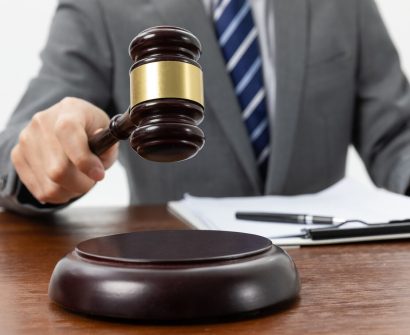
It’s common knowledge that people wish to safeguard their bodies and belongings, both mobile and immovable. Individuals typically exhibit anxiety when they believe that they or their belongings are at risk from unscrupulous parties who would steal and take advantage of them with malice in their hearts. It is necessary for the iron fists of the law to deal with this apprehending of sizable portions. The Trespass in Tort Act that must be made up for with compensation or punishment is handled by the law. These behaviors can range from a simple, malicious touch to the person to trespassing onto someone’s property without giving a reason.
Trespass in Tort
- According to the legal definition of trespass tort law, trespassing directly interferes with someone’s right to enjoy their property, to own their possessions, or to move about their property. Trespassing is a crime unto itself.
- trespass in tort implies that the claimant need only present proof of the trespass; the defendant does not need to be held accountable for any injuries or damages sustained.
- trespass tort law example: Without permission, Y entered X’s property to explore and have fun. The owner of the farm is X. This might be referred to as civil trespass. If Y goes on to steal one of X’s goats, Y will be held liable for criminal trespass in tort.
Trespass to Land in Tort
When someone purposefully enters another person’s property without authorization, it is considered trespass on land.
To make this claim, only the intention to enter or trespass on land is necessary. Therefore, your neighbors may still be held accountable for trespassing even if they unintentionally venture onto your lot from theirs.
How to Prove a Trespass to Land in Tort?
To prove a trespass to land in tort:
• Entry: The land that is the subject of the trespass must be intended to be entered by the defendant. It is not necessary for the defendant to have had malicious intent. In some states, therefore, inadvertently entering land can be considered trespassing. Trespassing also includes allowing something or someone to enter someone else’s property.
• Someone Else Property: It takes a legal interest holder in the land to file a trespass claim. A tenant or another third party could be the owner.
• Damages: In the majority of states, some damage must be incurred in order to establish a strong case. This could include anything from harm to the plaintiff’s land to injuries sustained. Although the defendant need not have intended to cause the harm, their actions must have played a significant role in the harm that was experienced.
Damages Available for Trespass on Land
Tenants or owners of land are entitled to damages for any harm brought on by trespassing. The following damages may be recoverable from you as the injured party, depending on the type of trespass in tort:
- Loss in market value
- Restoration expenses
- Loss of property usage
- Injury to any individual or his property
- Harm to your private belongings
- Emotional distress
- Discomfort and annoyance
Trespass Tort Law: Important Rulings
- In the case of Wood v Leadbitter, after buying a ticket to see a horse race, the defendant gave the plaintiff an order to leave the racecourse. When the defendant’s servant refused to follow his instructions, the defendant forcibly removed him. The plaintiff reported assault. Since the plaintiff had become a trespasser after his license was revoked, it was determined that the revocation of the license was effective.
- In the case of Hurst v Picture Theatres Ltd, after buying a ticket at one of the defendant’s theatres, the plaintiff went to the movies. He was falsely accused of going into the hall without having a ticket, and he was told to get out. He refused, so they lifted him out forcibly. After that, the plaintiff filed a lawsuit alleging wrongful imprisonment and assault. In this case, the license was deemed to have been granted and could not be revoked. Because of this, the defendant was accountable for his deeds and had to pay the plaintiff.
People may encounter trespass on numerous occasions throughout the day, but it’s crucial to comprehend the nature of the trespassed act, the property involved, the loss, and the plaintiff’s implications. If the act’s nature suggests a wrongdoing incident and was done voluntarily to restrict the enjoyment of the right to exclude from private property, then an assessment of all available options for recovering the damages should be made.
In order to loosen the screws and effectively resolve cases and situations, it would be beneficial to uncover various facets and comprehend the dimensions that the trespass law is clutching in its circumstantial surroundings. To assess trespass and apply the pertinent doctrines to resolve the cases, it is necessary to comprehend the true meaning of each term.
Read our latest blog on: ARTICLE 370 VERDICT
For any latest news, legal topics, judiciary exams notifications, patterns, etc watch Jyoti Judiciary’s YouTube channel for legal videos for any updates at https://youtube.com/@jyotijudiciarycoaching4852?si=2cwubh9d2A9urwJf









